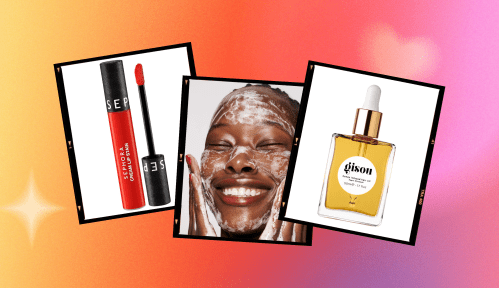Hyaluronic acid is in (almost) all of our skincare products, promising plumper, more hydrated skin, and it does just that. The ingredient is naturally found in our bodies and helps with joint lubrication, keeping those limbs from being achy and cracky. You’ll see serums, sprays, moisturizers, and more on shelves, with HA as a hero ingredient for hydration and moisturization.
Experts in This Article
board-certified plastic surgeon and founder of Shafer Clinic Fifth Avenue.
board-certified dermatologic surgeon at Shafer Clinic Fifth Avenue in New York City
Now, brands like Needed, Elemis, and Armra say ingesting HA can increase hydration from the inside out. Before you fill your Stanley cup full of water and HA or add more capsules to your morning routine, it’s important to understand that most beauty supplements aren’t complete miracle workers and should be approached with caution. Ahead, we spoke to expert board-certified dermatologists Dendy Engleman, MD, FAAD, and David Shafer, MD, FACS, on what you should know before taking ingestible hyaluronic acid.
What is hyaluronic acid (HA)?
Hyaluronic acid is a humectant that helps retain water within the skin barrier, resulting in plump, hydrated skin when applied topically. “Hyaluronic acid is great for all skin types and is especially good for dehydrated or mature skin since the skin loses moisture with age. It also strengthens the skin barrier, makes you look more dewy, and reduces the appearance of fine lines and wrinkles,” says Dr. Engelman.
Can ingestible hyaluronic acid improve skin texture?
Dr. Engelman stresses the importance of researching the source and ingredients of supplements before adding anything to your routine. “Although being hydrated helps the body’s everyday processes and supports healthy skin, oral ingestion of water and hydrating drinks are not directly correlated to skin hydration,” she says. In other words, just because a pill or powder claims to hydrate your skin doesn’t mean it is in the grand scheme. Ultimately, your best bet is drinking lots of water (if you’re concerned about hydration from the inside out), eating a balanced diet, and finding a moisturizing skincare routine for your concerns.
This Parisian Skincare Brand Is Launching in the United States for the First Time—Here’s What a Derm Wants You to Know

We’re Calling It: Cleansing Balms Are the Face Wash of the Future—Here Are 3 to Add to Your Cart

This Is the One Product That Scarlett Johansson Always Keeps in Her Purse and on Her Bedside Table

“Topical hyaluronic acid is best for targeting the skin’s surface layers and can have an immediate but temporary plumping and hydrating effect,” Dr. Engleman says. Of course, you should talk to your doctor and research before adding supplements to your diet, especially if bone or joint pain is your concern. Ultimately, take them if you want, but Dr. Engleman notes there is more scientific data and research to support HA’s topical and cosmetic benefits.
Injectable hyaluronic acid benefits
If you’re looking into using hyaluronic to enhance your skin and want to look beyond topical treatments, injectables might be a good option. “HA can be injected superficially with microneedling or as a dermal filler with a needle and syringe,” Dr. Shafer says. “Topical HA does not have a long duration of action because it is not absorbed efficiently and is metabolized quickly.” He noted that when HA is injected, bonds between the molecules allow the body to metabolize HA much more slowly. Thus, the treatment lasts longer.
“Daily topical HA is great for maintaining skin moisture. However, if volume enhancement is the goal, then an injectable HA such as Juvederm would be more appropriate,” Dr. Shafer adds. You can also consider Exion, a medical device that combines radio frequency and ultrasound therapy to tighten skin. “The treatment works by delivering RF and ultrasound energy to the lower levels of the skin, which in turn boosts collagen, elastin, and hyaluronic acid production,” explains Dr. Engelman.
If you are considering injectable HA or treatments like microneedling, you should consult a board-certified dermatologist who can prescribe the best treatment plan for your skin and needs.
Final takeaway
While supplements promising better skin pop up on the market daily, it’s important to understand that most won’t drastically change your skin. Most also need more critical research to back their effectiveness. However, many science-backed HA options can help your skin, whether topically, through a serum, or cosmetically, by way of a needle or treatment by a dermatologist.
Sign Up for Our Daily Newsletter
Get all the latest in wellness, trends, food, fitness, beauty, and more delivered right to your inbox.
Got it, you've been added to our email list.








